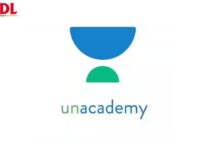Free laptops for GCSE students
Free laptops are helping a group of students with their General Ceertificate of Secondary Education (GCSEs). Eighteen teenagers at Newhaven Pupil Referral Unit in Eltham were given computers, funded by Mercers’ E-Learning oundation in London. The Learn Anywhere project is aimed at helping Year 9 children finish homework and coursework assignments. Another 12 students at
the unit are due to receive a laptop. They will also pay £3 a week to cover insurance costs for the machines and own the computers by the time they finish their GCSEs.
Becta to save cash for schools The British Educational Communications and Technology Agency (Becta) has launched a new ICT Infrastructure Services Procurement Framework. The framework is expected to save millions of pounds for education institutions. Around 16 suppliers will handle the framework, which covers system design, hardware and software
acquisition, training, implementation, and ongoing support. The EU approved framework is expected to reduce the risk and burden on schools and colleges.
Nepad launches e-School in Uganda
New Partnership for African Development’s (Nepad) electronic school initiative is officially launched at Kyambogo College School near Kampala, Uganda. The objective of Nepad’s e-Schools initiative is to equip all African
schools with ICT tools, to ensure that African youth graduate with the skills necessary to fully participate in the information society and knowledge economy. The three schools that are already benefiting from the Nepad’s Advanced Micro Devices are Kyambogo College School, St Andrew Kaggwa Senior Secondary School in Luwero and Bukuya Secondary School in Mityana.
AMD ’s 50×15 initiative expands educational
opportunities in Uganda A consortium led by AMD launched three digital nclusion programmes in schools in and around Kampala, the capital city of Uganda. As part of the 50×15 Initiative, AMD is collaborating with the Ugandan Government, the New Partnership for Africa’s Development (NEPAD) and 13 additional organisations as part of the company’s commitment to connect 5percent of the world’s population to the Internet by the year 2015. The AMD-led consortium is responsible for three of more than 100 secondary schools playing host to NEPAD’s e-Schools Demonstration Project – a critical initial step in the continental implementation of the NEPAD e-Schools Initiative. Through these deployments and the overall NEPAD Initiative, teaching, learning and administration at these schools are all enhanced. Students and teachers are empowered with ICT skills and knowledge and digital
resources enable an overall increase in health literacy. The added technology also facilitates increased efficiency in the schools’ management and administration systems.
Google joins hand with California varsity to digitise books
The University of California (UC) system has inked a pact with search giant Google to digitise millions of books in its libraries as part of the California-based firm- Mountain View’s Google Books Library Project, an initiative that aims to digitise volumes from the world’s vast array of libraries and make content available online. Other parties that have joined Google
in its digitisation efforts include the University of Michigan, Stanford University, Harvard University and the New York Public Library, among others. The UC network includes 10 campuses across the state that are home to some 34 million library books, and though UC has not specified which books will be digitised, it has said millions of volumes will be scanned under
the initiative.
Zimbabwe Army schools adopt ICT
Zimbabwe National Army (ZNA) schools have embraced Information and Communication Technology (ICT). The training programme will enable all ZNA schools to put the computers t good use. The introduction of the ICT training in army formal schools offers greater opportunities for products of this system to participate in development as their human capacities are improved, thereby
enabling them to cope with demands of an economic environment characterised by extensive use of information technology.
Egyptian students take IT route with mobile IT clubs
Egyptian Ministry of Communications and Information Technology, in association with the Cisco Networking Academy Programme, is giving basic computer training to the masses of remote areas of Egypt through a series of mobile IT clubs. The Mobile Information Technology Club initiative is supported by the United Nations Development Programme (UNDP) and the Italian Ministry of Foreign Affairs’ Cooperazione Italiana programme and currently features two caravans and two buses outfitted with PCs. Each vehicle has a satellite link giving users access to e-mail and the Internet, originally intended to provide people in remote communities with training and awareness on the basics of computer, Internet and multimedia use. Each mobile IT club has been made a local academy, with two instructors per vehicle operating under the auspices of the Egyptian Ministry of Communications and Information Technology’s e-Learning Competency Centre, which is one of six regional Networking Academies in Cairo. The caravans have 20 computers each and capacity for around 20 students, while the buses have 10 PCs apiece, with space for a student at each.
‘Plagiarism’ online threatening quality of British degrees
The practice of online sites selling essays and completed assignments to students has reached a 200-millionpound business in UK which is threatening quality of British education. The issue has reached such proportions that the House of Commons education select committee has decided to hold a special session later this year to investigate it. New online sites are appearing almost every week and many sites report incomes in millions as students prefer to buy their assignments. According to an investigation made by University of Central England, Internet cheating and selling tailored essays has assumed the dimensions of international trade, the trend has been termed by them as ‘contract cheating’. Such sites claim that their work is mainly intended as a ‘guide’ to students, but they actually encourage plagiarism. ‘E-learning Ghana’ launched ‘E-learning Ghana (www.elearningghana.com)’ to offer a wide variety of high quality affordable e-learning courses has been launched in Ghana by 2Ti Solutions and BusyInternet.
‘E-learning Ghana’ will cover a wide range of technical IT and business
Skills topics. Over 1200 courses and an additional forty to fifty new courses will be added every quarter. The primary objective is to provide customers with extremely affordable pricing combined with world-class quality, resulting in outstanding value. ‘E-learning Ghana’ will be available from BusyInternet throughout the day and all the days. It will ensure that its users are able to maximise benefits that online learning materials offer. New Zealand spearheads to give boost to students ICT knowledge In a bid to modernise education using ICT, another USD200 million is to be ploughed into the
New Zealand’s schools, over four years.
The aim is to ensure young people have confidence in using ICT tools. The project will also provide remote schools with satellite broadband at a subsidised rate including schools in the Chatham Islands and on Pitt Island at a cost of USD700,000 over two years. Laptops for all teachers account for the biggest item in this year’s action plan budget at a cost of USD17.58 million. The programme was announced last week, at Wellington’s Brooklyn School. It allowed the ministry to demonstrate the country’s first tablet classroom






















